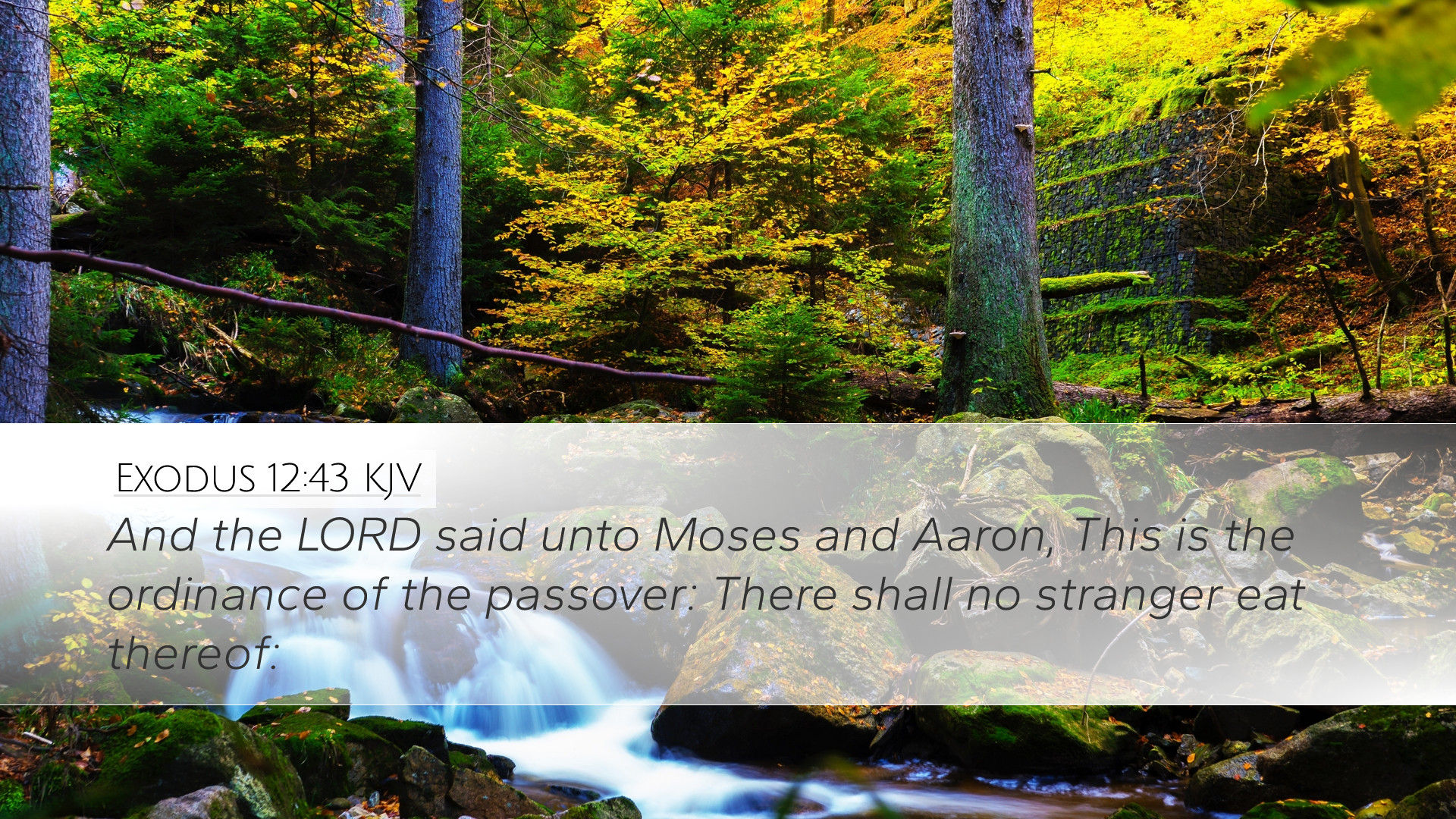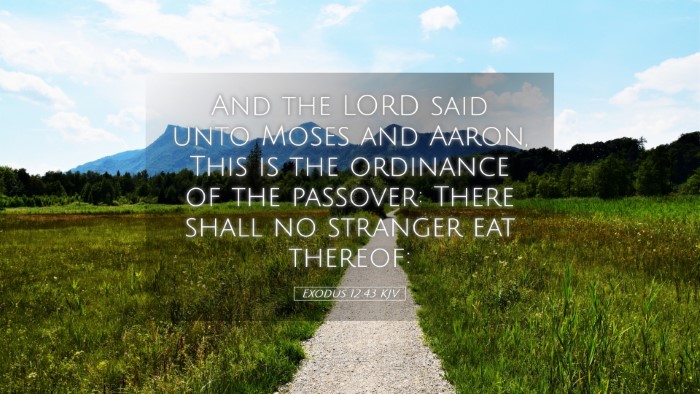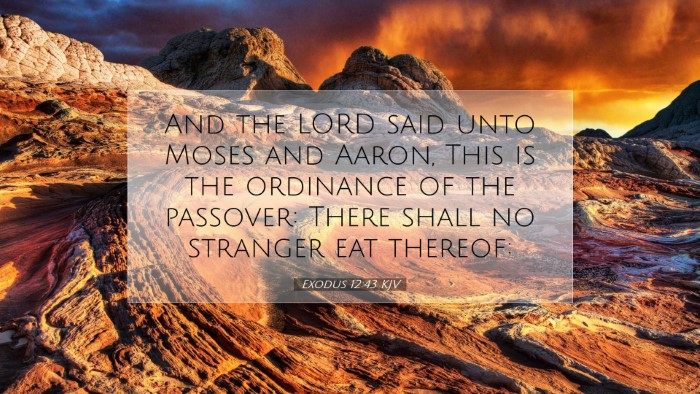Commentary on Exodus 12:43
Exodus 12:43 reads: "And the LORD said unto Moses and Aaron, This is the ordinance of the passover: There shall no stranger eat thereof." This verse is pivotal as it marks a significant transition in Israel's journey from oppression to liberation. The insights drawn from various public domain commentaries provide depth to understanding its implications.
1. Context and Significance
Exodus 12 forms the foundation of the Passover, an observance that signifies God's deliverance of Israel from Egyptian bondage. The mention of "no stranger" being allowed to partake in the Passover emphasizes the covenant relationship God has established with His people.
Historical Lens
Matthew Henry emphasizes that this ordinance delineates the exclusivity of the covenant. He notes that the Passover meal was not merely about physical nourishment but also about spiritual communion with God. Henry points out that the term 'stranger' denotes those outside the fellowship of God's chosen people. The Passover, therefore, requires a relationship with God that goes beyond mere participation; it involves adherence to His commands and belonging to His family.
2. Theological Implications
From a theological perspective, this passage raises questions of inclusivity and exclusivity in God’s salvific plan.
Albert Barnes' Interpretation
Albert Barnes elaborates on the nature of the Passover as a sacred act that is not to be treated lightly. He elaborates that those who partake must first align themselves with the covenant community. The restrictions surrounding the Passover highlight God's desire for His people to be set apart, establishing a holy nation distinct from others. Barnes further notes that while the door is open for outsiders (gentiles) willing to adopt the faith, they must fully embrace the covenant and its stipulations.
3. Practical Application
For modern readers, particularly pastors and theologians, Exodus 12:43 invites reflection on the nature of belonging within the community of faith. It emphasizes the responsibility of teaching members about the significance of participatory worship.
Insights from Adam Clarke
Adam Clarke provides a practical application of the restrictions around the Passover. He argues that the teaching here goes beyond dietary laws; it engages the heart of the worshipper. The prohibition against outsiders participating in the Passover signifies the importance of understanding and honoring the nature of God’s covenants. Clarke encourages believers today to reflect on their own observance of church ordinances and sacraments, recognizing the need for sincere faith and commitment as prerequisites for communion.
4. Reflection on the Nature of God
This verse also serves to deepen our understanding of God’s holiness and justice. The call for purity among His people reflects the wider demands of holiness God places upon His covenant community.
Matthew Henry's Reflection
Henry reminds believers that God’s nature is holy and just. The limitations put on the Passover meal serve to highlight the sacredness of God’s covenant with Israel. It challenges contemporary faith communities to examine their corporate identity and individual commitments to holiness. The call to avoid participation without proper alignment with God's will is a potent reminder for churches today.
5. The Future and the Passover
The Passover holds eschatological significance as well. It foreshadows the ultimate sacrifice of Jesus Christ, the Lamb who takes away the sins of the world.
Albert Barnes on Christ as the Passover
Barnes draws connections between the Passover lamb and Christ, suggesting that just as only those who were part of the community of Israel could partake of the lamb, so too only those in Christ through faith can partake of the benefits of His salvation. This casts a shadow on future redemption, suggesting that the exclusivity of the Passover prepares the way for the New Covenant.
Conclusion
Exodus 12:43 serves not only as an instruction for ancient Israel but also as a lasting reminder of the nature of God’s covenant with His people. Through the insights of Henry, Barnes, and Clarke, we gain a deeper understanding of what it means to belong to God’s community. This verse posits questions about inclusion, holiness, and the nature of covenantal faithfulness, which are crucial for all who seek to understand God's intentions for His people.
In sum, the commentary on Exodus 12:43 is a profound call to reflect, engage deeply with the text, and recognize the continuity of God's redemptive work across the biblical narrative.


